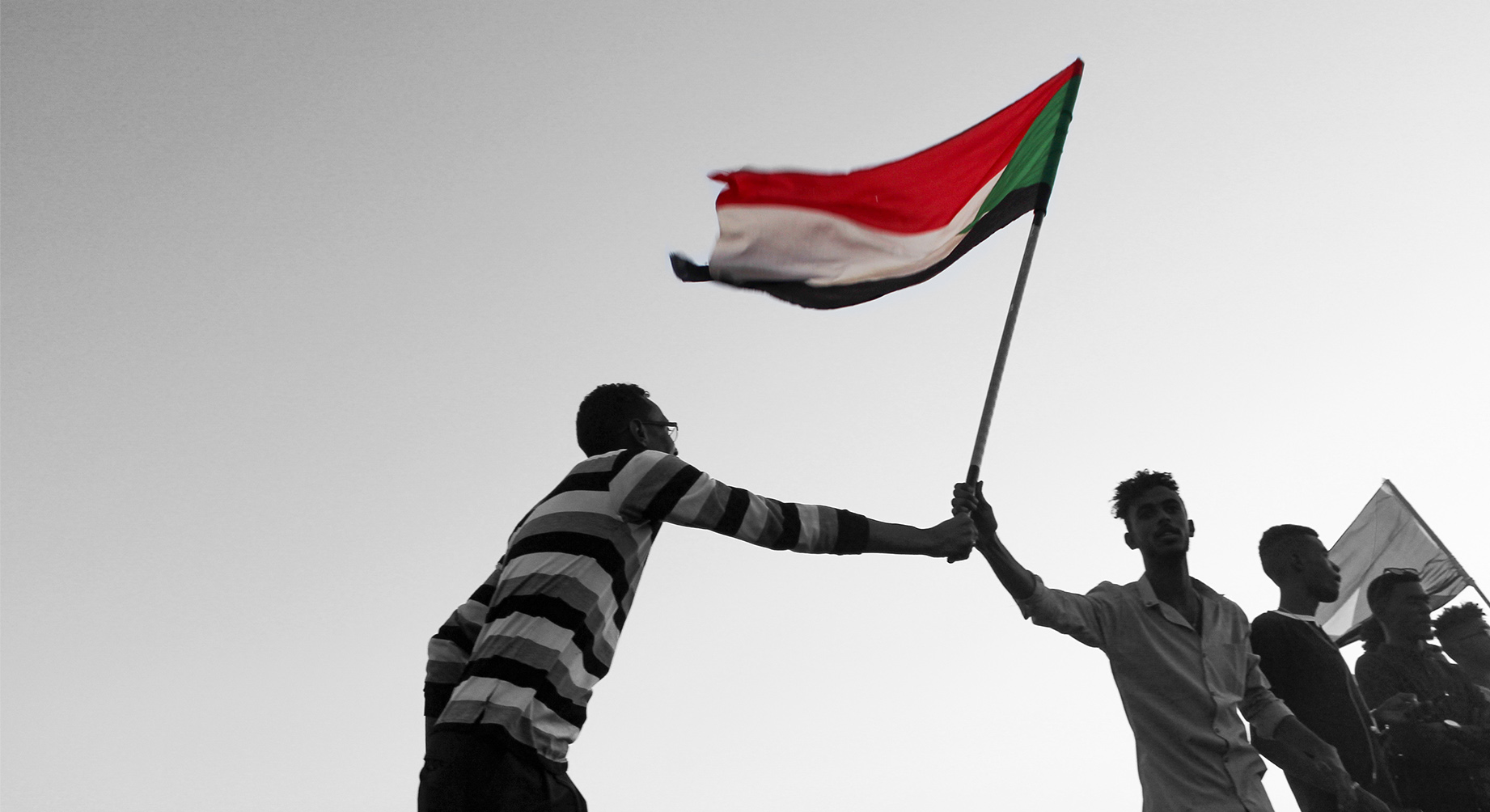
Civic Space in Sudan, April 2024 - Madani Abbas Madani Mohammad
Introduction
The war between the Sudanese army and its Rapid Support Forces (RSF), which broke out on April 15, 2023, caused an unprecedented restriction of civic space in Sudan to a level not even seen under the authoritarian regimes that ruled the country in various periods. If we imagine the state of civil space in Sudan graphically, we will draw a sloping curve that almost reaches zero the longer the war extends.
The war began when civic space and civil society in Sudan were in a state of interaction and vitality that followed the December 2018 revolution. The coup against the transitional government on October 25, 2021, did not succeed and failed to form an executive government until the war broke out. However, since the outbreak of the violent war in Sudan, which began in the capital, Khartoum, civic space in Sudan witnessed a significant reduction in favor of militarization and mobilization by both parties to the conflict.
Challenges to Civic Space in Sudan (January-April 2024)
From the beginning of 2024 until the end of last April, the pace of restrictions on civic space accelerated arrests and torture, reaching the point of assassination of civil and political activists. The Public Prosecution loyal to the army issued arrest warrants against several politicians, media figures, and anti-war civil society activists, preventing any peaceful civil society activity. Due to the war in Sudan, civilian cadres working in the humanitarian field were arrested, and other forms of infringement on civil space in Sudan took place.
The war in Sudan is the main obstacle and challenge to the effectiveness and vitality of its civic space. The past months of this year saw severe restrictions and abuse of civic space actors. In areas controlled by the Sudanese army, the doors of independent civic activity were shut in favor of Islamist elements loyal to the Bashir regime and other groups loyal to the army in its war against the RSF. Even workers in humanitarian emergency rooms were arrested and accused of being faithful to the RSF.
In addition to restricting those working inside Sudan, the parliamentary authority loyal to the army issued arrest warrants and filed charges related to crimes against the state against the leaders of the Democratic Civil Forces Coordination and several political and media leaders and civil society activists. The list of those charged included the Prime Minister of the Transitional Government in Sudan, Dr. Abdullah Hamdok, some transitional government ministers, and political party leaders in April 2024. Consequently, as CSOs transferred many of their activities to other African countries, especially Kenya, Uganda, and Addis Ababa, the military intelligence services continued to impose restrictions on young people traveling to and from Sudan.
In RSF-controlled areas, accusations of loyalty to the army were leveled against many who fell into their hands. The RSF also arrested humanitarian activists. The absence of the banking system in RSF-controlled areas has contributed to limiting the activity of CSOs. In many states controlled by RSF, Internet services are absent except through Starlink devices that RSF provides to those requesting Internet services in exchange for a fee and a limited period per person. Official state agencies are absent from areas under RSF control, and citizens are entirely subject to their military commanders.
As war broke out, many organizations that finance civil society activities in Sudan suspended their activities or moved their offices to the capitals of nearby counties. Organizations working in Sudan are limited to the humanitarian field due to increasing human suffering, restrictions on other activities, and lack of funding for CSOs working in the country.
With the continuing restrictions on civic space, many civil activists and politicians left Sudan, and many Sudanese organizations transferred their humanitarian and civic education activities to neighboring countries, which certainly impacted the effectiveness of the country's civic space.
Civil Society in Sudan: Surviving Hardship
Sudanese society has not surrendered despite the severity of the attacks and post-war challenges. In addition to the humanitarian roles, especially those of grassroots groups (emergency rooms), CSOs continued to monitor violations committed by both parties against activists in the civil sphere. For example, the Sudanese Journalists Syndicate has been releasing regular reports on violations targeting media workers and challenges facing media freedoms in Sudan. Although many organizations moved abroad, they remained linked to the actors on the ground, establishing tools to coordinate their work and programs in the country.
Civil society and political actors have also joined activities and campaigns calling on the international community to pressure the parties to the conflict in Sudan to stop the war. They presented visions about the country's post-war future and how to restore the path of democratic transformation.
One of the most important civil society responses to the situation in Sudan could be continuous campaigns and activities against hate speech, prosecution of its proponents, and calls for national unity and social cohesion.
Conclusion
Civic space in Sudan is subject to increasing restrictions. However, civil society has shown its steadfastness and resistance to the challenges. In conclusion, the development of civic space and its effectiveness is not only required for democratic transition in Sudan but also for the survival of the state, which faces threats to its unity due to the discourses of division and hatred produced by the war.
Recent publications

